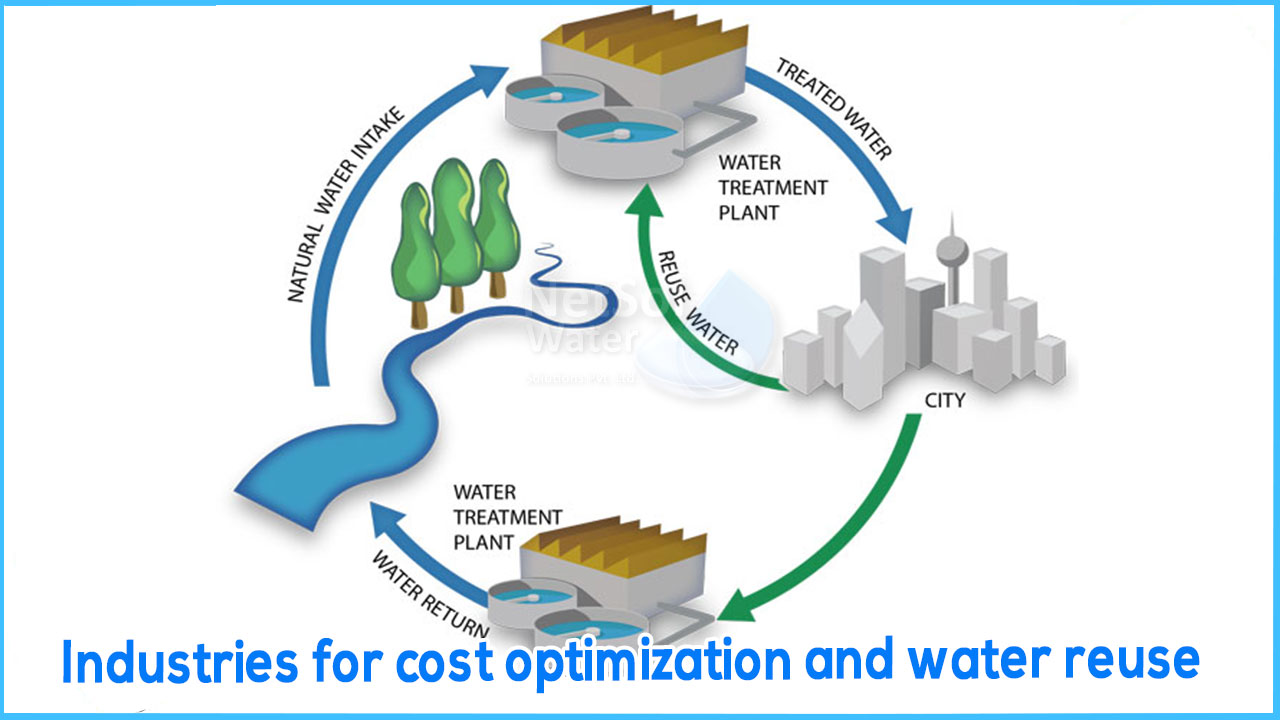Reverse osmosis desalination isn't simply for drinking water or removing dissolved particles from process water. The reverse osmosis method can be used in a tertiary stage of RO waste water recycling to considerably reduce total dissolved solids and improve the quality of the treated water. Many industrial process water uses can commonly reuse post-treated water.
FIVE ADVANTAGES OF WASTE WATER RECYCLING AND REUSE:
1. Lessening the influence on the environment
Filter presses are used to dewater and separate liquids and solids in a variety of sectors, including several that are actively developing and implementing water conservation and wastewater reuse techniques. Mining and mineral processing businesses can deal with mine tailings in a novel way by dry-stacking them rather than using tailings ponds, thanks to modern, large-scale filter press technology.
2. Reduce the demand for freshwater and the stress placed on it
Agriculture consumes a lot of water. Freshwater supplies utilized for agricultural uses, such as irrigating crops, commercial and residential landscaping, irrigating public and private golf courses, and nurseries and horticulture, can be relieved by using recycled, treated wastewater. Treated and recycled wastewater provides a cost-effective supply that reduces the pressures on freshwater sources such as groundwater, rivers, and reservoirs, as well as the stress they face. This is especially significant in locations where water scarcity and drought have occurred.
3. Eliminating the requirement for water transport
Recycling and reusing industrial wastewater on-site is today regarded a smart business practice that helps organizations become more profitable and efficient, rather than a disposal problem. The cost of transporting wastewater to off-site treatment facilities is high. Industrial operations that recycle wastewater on-site for reuse in a range of industrial processes save a significant amount of money on transportation, disposal, and energy. Because, let's face it, many industries are quite water-intensive, recycling and reusing wastewater is a cost-effective way to meet your industry's large-scale water demands.
4. Improving long-term viability
Sustainability is a widely used concept that isn't always well understood. In plain terms, it is concerned with addressing current needs without jeopardizing future generations' ability to meet their own. It has a social, economic, and environmental component.
So, how do filter presses fit into the sustainability equation?
Quite a bit.
Sludge dewatering, or the separation of the liquid and solid components that make up sludge waste, is a process that is fundamentally sustainable and environmentally friendly.
5. Avoiding costly non-compliance penalties
One of the key advantages of adopting filtration technologies that aid with wastewater reuse and recycling is that it helps the environment by reducing pollutants. Furthermore, employing wastewater reuse solutions makes it easier for you to avoid the high costs of non-compliance with strict wastewater disposal rules. Being a profitable firm while also being environmentally conscientious is a win-win situation.
NETSOL wastewater treatment solutions, which include RO waste water recycling, can help your company save money, achieve sustainability goals, and tackle water scarcity. It contributes in all the advantages stated above. Waste water recycling and water reuse is gaining importance with each passing day and NETSOL understands its duty and always tries to contribute their bit in this beautiful initiative for saving fresh water and achieving sustainability.




